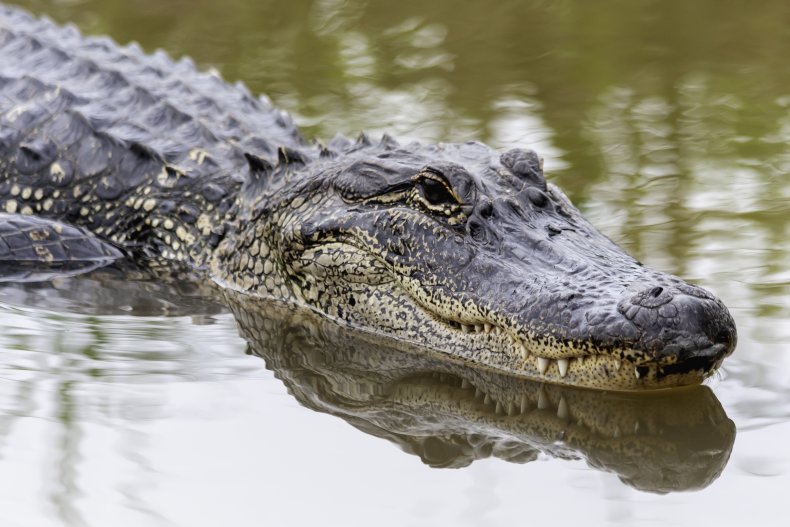Florida Man Arrested for Allegedly Shooting Alligator With Rifle
An alligator has died after being shot in the head by a man in Fort Myers, Florida.
Andrew Price faces two misdemeanor charges after shooting the animal as it swam in a neighborhood pond on March 20.
The Florida Fish and Wildlife Conservation Commission (FWC) and the Lee County Sheriff's Office attended the scene. The alligator was captured alive, but it had to be euthanized because of its injuries.
Local media reported that Price admitted to shooting the animal.
According to eyewitnesses, he was with his young son when he opened fire on the alligator, and there were people around at the time.
"There was no reason for him first of all to fire a firearm in here because it was across the lake, and there were people walking around," said Cindy Elins (via Wink News).
"It could have ricocheted; it could have done anything."
Alligators are protected under Florida law, which states: "A person may not intentionally kill, injure, possess, or capture, or attempt to kill, injure, possess, or capture, an alligator or other crocodilian, or the eggs of an alligator or other crocodilian, unless authorized by rules of the commission."
Killing or injuring an alligator is a third-degree felony in the state. However, Price's charge has been reduced to a first-degree misdemeanor for cruelty to animals.
He has also been charged with a first-degree misdemeanor for firing a gun in a public place.
If Price is convicted, he could face a maximum punishment of one year in prison and a fine of up to $5,000.
Florida is home to an estimated 1.3 million alligators. As temperatures rise, so does the metabolic rate of the reptiles, which become more active at this time of year as they seek food and start courting ahead of the mating season in May and June.
Despite the high numbers of alligators in the area, attacks on humans are rare.
"The likelihood of a Florida resident being seriously injured during an unprovoked alligator incident in Florida is roughly only one in 3.1 million," the FWC says.
Last year, Florida saw 12 recorded alligator bites on people, none of which were fatal, though eight of those incidents "required medical care, beyond first aid."
Between 1948 and 2019, 413 unprovoked bite incidents were recorded in the state, with 25 of them resulting in fatalities.
The FWC's safety recommendations include taking extra precautions near water. It advises keeping children and pets a safe distance from water, and swimming only in designated swimming areas during daylight hours.
Feeding wild alligators is also illegal, because it can cause them to start associating people with food.


